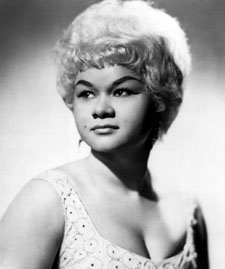 Listen to WNCU via your mobile device by using
Listen to WNCU via your mobile device by using Public Radio Player for iPhone or TuneIn Radio for iPhone, iPad, Android, Windows Phone, BlackBerry, Palm and Samsung Bada.
Public Radio Player for iPhone or TuneIn Radio for iPhone, iPad, Android, Windows Phone, BlackBerry, Palm and Samsung Bada.
Archive for July, 2012Apps to Listen WNCU 90.7 FMMonday, July 30th, 2012Study Offers New Data on How Indoor Insecticide Spraying Cuts Malaria InfectionsSaturday, July 7th, 2012
The investigators say the more important contribution of the study is its identification of factors — one of which is the use of the widely banned insecticide DDT — that appear to influence the success of indoor residual spraying (IRS). Their review appears in the July issue of The American Journal of Tropical Medicine and Hygiene. Kim and his Duke co-authors, Kristen Fedak and Randall Kramer, conducted a meta-analysis — a form of research that synthesizes the results from previous studies — of 13 peer-reviewed reports published between 2000 and 2010 that considered how IRS affects malaria transmission in various settings, mostly in Africa. IRS involves coating the walls of homes or community buildings with insecticides in an effort to curb infections by killing malaria-carrying mosquitoes. “Our findings show that during the last decade IRS has remained a powerful tool for fighting malaria, eventhough mosquitoes, particularly in Africa, are developing the ability to evade widely used insecticides,” Kim said. It is widely accepted that IRS can significantly reduce malaria infections, Kim said, but what is less known are the factors that can influence the extent of success. The researchers found that IRS appears to be best at reducing malaria infections in areas experiencing a high rate of disease and where there is a threat from both Plasmodium falciparum parasites — the most deadly form of the disease — and Plasmodium vivax parasites. The IRS campaigns were found to be more effective if they involved several rounds of spraying. Another factor that appeared to improve IRS effectiveness was the use of DDT. “Our (study) results show that DDT is more effective at reducing malaria prevalence thanpyrethroids or other insecticides,” the authors state. Pyrethroids are the most widely used class of insecticides in IRS programs. But over the last decademosquito populations in many malaria-endemic areas have developed traits that make them resistant to these compounds. DDT (dichlorodiphenyltrichloroethane) has been banned in the United States since 1972 and subsequently in many other countries over concerns about its toxicity to humans and animals. Those dangers were primarily the result of widespread use of DDT in agricultural settings, however, and applications for IRS are small by comparison. Kim and his colleagues note that recent studies indicate that even at low levels, DDT may still be harmful to those exposed. But he said the study’s findings indicate that the advantages may outweigh the hazards in places where malaria transmission is particularly intense. The environmental dangers would need to be weighed against DDT’s potential to reduce malaria illnesses and deaths, he said. Kim and his colleagues note that the finding of substantial effectiveness (62 percent with considerablevariation) for indoor spraying implies that mosquito control methods have “improved substantially during the past decade.” They also called for more studies that consider the effectiveness of IRS and insecticide-treated bed nets together to see whether “there is any additional benefit of combining” the two in the same households. The review by Kim’s group is one of two major articles about the battle against malaria in the July issue of The American Journal of Tropical Medicine and Hygiene. In the other study, scientists affirmed the effectiveness of a critical anti-malarial drug, Artesunate, in a West African malaria “hot zone,” even though malaria-carrying parasites in Southeast Asia have developed resistance to the drug. “Both of these studies demonstrate the incremental successes and long-term challenges faced by ourdrive to prevent needless deaths due to malaria,” said James W. Kazura, M.D., president of the American Society of Tropical Medicine and Hygiene, the organization that publishes the journal. “Make no mistake, this is a winnable battle. We can and will ultimately eradicate malaria from its strongholds in Africa and Asia.” Dohyeong Kim joined the NCCU faculty in 2008, one year after receiving his doctorate in City and Regional Planning from UNC–Chapel Hill. A native of South Korea, he holds bachelor’s and master’s degrees in Public Administration from Yonsei University in Seoul. The full article can beviewed here: http://www.ajtmh.org/content/87/1/117.full (Note: Dr. Kim is currently in South Korea but can be reached for interviews. Interview inquiries should be directed to Bridget DeSimone at 301-280-5735 or [email protected].) Etta JamesSunday, July 1st, 2012
My mother always told me, even if a song has been done a thousand times, you can still bring something of your own to it. I’d like to think I did that. – Etta James Early LifeBorn Jamesetta Hawkins on January 25, 1938, in Los Angeles. As a child, Etta was a gospel prodigy, singing in her church choir and on the radio at the age of 5. When she turned 12, she moved north to San Francisco where she formed a trio and was soon working for bandleaderJohnny Otis. In 1954, she moved to Los Angeles to record “The Wallflower” (a tamer title for the then-risqué “Roll with Me Henry”) with the Otis band. It was that year that the young singer became Etta James (an shortened version of her first name) and her vocal group was dubbed The Peaches (also Etta’s nickname). Soon after, James launched her solo career with such hits as “Good Rockin’ Daddy” in 1955.
|


 A study by researchers at North Carolina Central University and Duke University offers new evidence supporting indoor insecticide spraying as a way to sharply reduce malaria deaths. In the most comprehensive review to date of the effectiveness of indoor insecticide treatments, a team led by Dohyeong Kim, Ph.D., associate professor in NCCU’s Department of Public Administration, found that over the last decade, the treatments have reduced infections in communities with high rates of malaria by an average of 62 percent, despite rising insecticide resistance among mosquitoes.
A study by researchers at North Carolina Central University and Duke University offers new evidence supporting indoor insecticide spraying as a way to sharply reduce malaria deaths. In the most comprehensive review to date of the effectiveness of indoor insecticide treatments, a team led by Dohyeong Kim, Ph.D., associate professor in NCCU’s Department of Public Administration, found that over the last decade, the treatments have reduced infections in communities with high rates of malaria by an average of 62 percent, despite rising insecticide resistance among mosquitoes. Born January 25, 1938, Etta James was a gospel prodigy. In 1954, she moved to Los Angeles to record The Wallflower. By 1960, her career began to soar. Despite her continued drug problems, she earned a Grammy nomination for her 1973 eponymous album. In 2006, she released the album All the Way. She is considered one of the most dynamic singers in music.
Born January 25, 1938, Etta James was a gospel prodigy. In 1954, she moved to Los Angeles to record The Wallflower. By 1960, her career began to soar. Despite her continued drug problems, she earned a Grammy nomination for her 1973 eponymous album. In 2006, she released the album All the Way. She is considered one of the most dynamic singers in music. Mid-career
Mid-career Later Career
Later Career